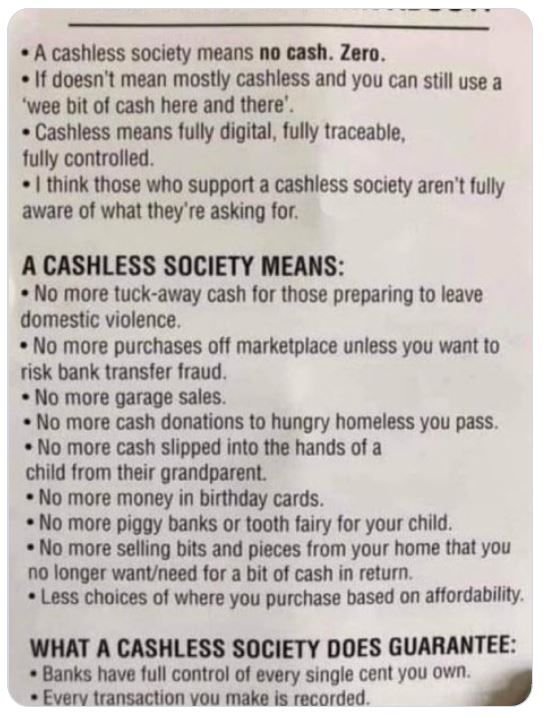this post was submitted on 06 Jun 2024
492 points (84.0% liked)
Privacy
833 readers
1 users here now
Privacy is the ability for an individual or group to seclude themselves or information about themselves, and thereby express themselves selectively.
Rules
- Don't do unto others what you don't want done unto you.
- No Porn, Gore, or NSFW content. Instant Ban.
- No Spamming, Trolling or Unsolicited Ads. Instant Ban.
- Stay on topic in a community. Please reach out to an admin to create a new community.
founded 2 years ago
MODERATORS
you are viewing a single comment's thread
view the rest of the comments
view the rest of the comments

No, that's not quite how GPS works. The satelites are constantly sending a signal, the GPS receiver is trying to pick up at least two satelites, and it computes your location off of the phase shift and whatnot of those constantly-broadcasting signals.
That's why GPS still works in airplane mode.
Four. GPS solves position in 4-dimensional space.
3 satellites for 2 dimensional space, 4 satellites gives you height as well (3 dimensional).
your wristwatch gives you your fourth dimension ;-)
GPS satelites are just fancy atomic wirstwatches hanging on Earth orbit
heh, this is true, but don't they still only give you a 3 dimensional location?
I'm trying to understand your question. They broadcast both their orbit parameters and their time.
No, more is preferred, but the way the signals are designed, some positioning slowly works with only two satellites.
Like old phones. Remember when GPS was slow and always a few meters off? Part of that was they were bad at or could not acquire more than two signals.
s/signals/receivers
I guess receivers that also measure angle to satelites do have 4 constants with only 2 satellites to get 4d solution(or rather 2 solutions, one of which is in future, while other is in the past, not sure which one is correct). Or maybe try to do some wierd math shit with Doppler shift. I was talking about original(cheap and easy) way receivers were solving coords with 4 latencies.
If we are really pushing the limits here, then receiver that knows it doesn't move relative to Earth can get coords from one satelites, but this is just speculation. And it may require atomic clock.
This doesn't sound like reason for it. Slow start? Receiver first needs to receive ephemerides and almanac to be able to solve position. Quoting wikipedia article on A-GPS:
Almanac can be stored on device for a long time to be used later in next start. It's called warm start. Ephemerides don't last as long. Start when they aren't stale called hot start.
Now goes quote from another article
So bright minds thought "what if almanac and ephemeris" will be downloaded from the internet? And this is how A-GPS was born.
Now about precision. Few meters is normal precision for normal GPS. Getting better precision requires very scary math hiding behind Differential GPS and additional correctional data. Not that normal GPS doesn't have scary math.
Lastly, about two satelites: old phones had one antenna per band(and usually only one band), so they did require at least 4 satelites.
Yes, but the receiver need the position of the satellites to compute its own position. That data is transferred very slowly, so if you can download it through the internet, then you only need the identifiers of the satellites to immediately compute.
As I said, cell towers send information so that GPS can work better. I didn't say that GPS needs cell towers.
https://en.m.wikipedia.org/wiki/Assisted_GNSS
The tower has its own GPS antenna. The cell tower knows approximately where you are.
You're still misspeaking and implying the data is necessary. It is not. At all. Period.
How do you think Garmins and the like work when they have NO external data connection? They don't magically take way longer to position...
I did not misspeak. I linked to a-gps which explains how the system works.
You do not need to transmit or receive cell data to receive a GPS signal. If you use GPS isolated, your location isn't leaked.
But that's irrelevant because if you use cellular data, the cell tower knows approximately where you are.
I have been using GPS since before cell phones had data. My boss back in 1994 brought in the man who wrote the accuracy encryption part of gps (that has since been turned off) to give a talk on the encryption that used to be in GPS to myself and my coworker just for the fun of it because they were old friends.
Misspeaking is not the same as misunderstanding.
Does GPS need cell towers? Yes or no.
Because I explicitly said that GPS does not need cell towers and you claimed I misspoke.
GPS does NOT need them to be "faster" for what an end user expects.
Cold start is 2-4 minutes.
https://en.m.wikipedia.org/wiki/Time_to_first_fix#:~:text=The%20TTFFs%20for%20a%20cold,than%20the%20full%2012.5%20minutes.
Waiting 4 minutes for your phone to show your location the first time you click your map app would be unacceptable for most people today. Agps ameliorates that delay.
But that's irrelevant to my statement that "GPS doesn't need cell phone." Which you claim is a misspeak.
"I didn't say GPS needs cell towers"
How is that a misspeak?